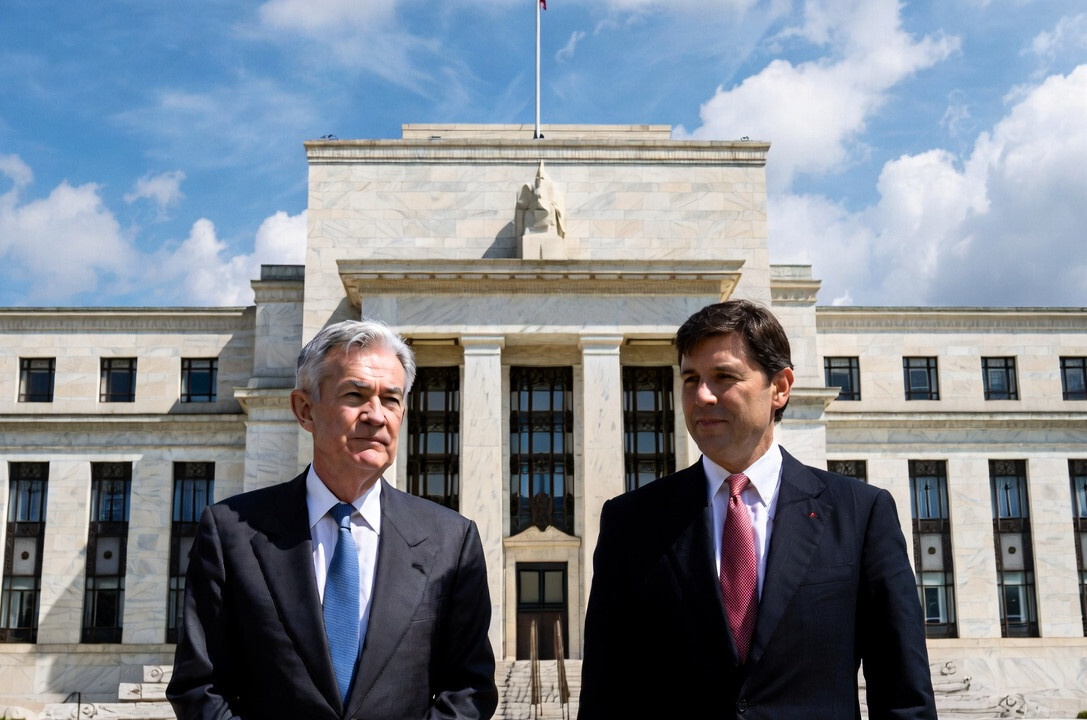Una delle migliori case di ricerca, di cui siamo stati assidui lettori per anni, è Gavekal. Di seguito riportiamo – senza alcun commento – una conversazione piuttosto cruda (1) fra i suoi tre principali rappresentanti: Charles Gave, Louis Gave e Anatole Kaletsky.
Charles:Can the ECB continue to support the Euro through open refinancing operations—or are we not reaching a point where the whole system is stretched beyond credulity? Look at it this way: Greek issued debt is €330bn (forget the off balance sheet liabilities as the numbers get too scary). This debt is now trading at 55c on the Euro on average. So there is a paper-loss of roughly €150bn on Greek debt alone floating out there. For the sake of argument, let us agree that there is probably another €150bn paper loss (conservative estimate) on Portuguese and Irish debt together. So European institutions face some €300bn of paper losses on Irish, Greek and Portuguese debt alone.Now have these losses been taken? Or are the bonds still being marked at par in books? And how much of the unrecognized loss is on the ECB’s balance sheet: €50bn? €100bn? Whatever the number is, it is bound to be much higher than the ECB’s €10bn of paid-up equity capital. In fact, on a “mark-to-market” basis, the ECB is more bust than Lehman or RBS ever were; begging the question of whether there is a limit to how much paper the ECB can take on its balance sheet and pretend that it is worth par?
Wasn’t this how everything got re-started anyway? Back in November, the ECB basically said they would no longer take Irish paper (remember Tietmeyer’s promise back in the 1990s that, when the Irish needed help, they best not coming knocking on the ECB door?). Since then, the spreads on Greece, Ireland and Portugal have barely looked back!
Louis: At this stage, this much is obvious:
• Greece is bust and the maths on Ireland and Portugal are very challenging.
• There is a massive battle going on behind the scenes between those who want to avoid a restructuring at all costs (even if that means years of misery for Europe’s weaker nations) and those who would rather bite the bullet, clean the slates and start again.
At the heart of the battle is the question of whether a right balance can be struck which a) puts enough pain/humiliation on Greece to satisfy the Germans, and b) is not so much pain that the Greeks decide to take it rather than leave the Euro/ renegotiate their debt. It is a tough balance to strike and, a year into the process, we seem no closer to striking this balance. And so Greek bond yields continue to make new highs in spite of ECB purchases, IMF intervention, creation of the ESM and the EFSF, etc. With that in mind, it seems to me that the prospects of the above balance being reached and a deal being struck are getting more remote...
Anatole: What you are saying in effect (and I agree) is that as time goes on a durable solution, or even an orderly restructuring, becomes less likely, whereas EU politicians and most market commentators believe the opposite—that the longer they can keep this process going the more likely a solution becomes. I agree with you not because of Charles’ belief that the Euro is inherently an incurable Frankenstein Monster, but for three other reasons:
1. Some powerful elements in the debtor countries will be more likely to stop their adjustment programs the longer the pain continues without sufficient evidence of economic recovery.
2. Some powerful elements in the creditor countries will be more likely to stop their lending programs the longer the lending continues without sufficient evidence that the financial problem has been solved.
3. The passage of time itself is evidence of how difficult it is to reach a political compromise between the debtor countries and the creditor countries. Thus the longer this process continues, the clearer it will become to some powerful elements in either the debtor or the creditor countries that no political compromise can be achieved.
This is why I became much more bearish after the failure of the March 24th European summit to agree on a credible funding and legal structure for the post-2013 resolution mechanism (ESM). The official message from the EU was that the failure of the March summit was just due to lack of time and technical issues that would be resolved at the late June summit. In my view however these "technical" issues now seem much more daunting than they did before the March summit. As such, I would bet that the main outcome of the June summit will be to postpone a final decision until September, which will then decide to postpone to December and so on.
You will note that in each of the three paragraphs above I have deliberately used very similar phrases—"powerful elements in the debtor countries" and "powerful elements in the creditor countries". This I to emphasize two points that most people keep missing:
• The risks to the Euro come symmetrically from both debtor and creditor countries—this not just about Greece, Ireland and Spain or about Germany, Finland and Holland but about both—and a radical change in any of these countries’ politics would be enough to blow up the entire process.
• “Powerful elements” in any of these countries would be sufficient to sabotage the system. To blow up the Euro will not require a majority vote in a referendum—merely a change of mind by just one powerful political group in just one of the creditor or debtor countries—e.g., the trade union movement in Ireland or the Bundesbank management in Germany or maybe even a single political party, as we are seeing in Finland.
So far there is not much evidence of the above happening but to rely on such an unstable equilibrium lasting for many more months, or even years, seems rather optimistic.
Charles: On your comment about my obsession on the “Euro being a Frankenstein,” I do believe that the fact that Europe’s polic makers do not seem to know what a currency is, or how it works, is indeed deeply problematic. Let me explain:
Our investing business is all about “value”. Why do things have values and why on earth do these “values” move over time? To measure values we use currencies, though it is very hard to explain to me why currencies themselves have any value, since, in our world of fiat money, the marginal cost of producing them is zero. So
I think that our business has two sides:
• The easier one is trying to understand how the values are going to move vs. one another (bonds vs. equities, or oil vs. coal etc.), making in the meantime the assumption that the value of money will not move.
• The more difficult one is trying to understand whether the value of currencies themselves are about to change.
Now currencies have two prices: a domestic price (interest rates), and an international price (the exchange rate). Finally, as we have discussed many times in the past, the only way for a fiat monetary system to work is if the different currencies, each one corresponding to a different economic and political system, can compete freely with one another.
The problem is that when Jacques Delors devised the common monetary zone, the two most important prices (interest rates and exchange rates) were locked together for countries with very different debt levels, demographics, culture, productivity, institutional set-up, etc. This is why we have argued in the past that the Euro was always going to lead to too many factories in Germany, too many houses in Spain, and too many civil servants in France.
Unfortunately, after more than a decade of blatant misallocation of capital, mostly financed by increases in government debt in almost all European nations, the consequences of the capital misallocation cannot be addressed democratically through the structures which have thus far been devised, especially in the countries that have financing problems today.
The only answer Europe’s elites have so far come up with is to take away various countries’ sovereignty and give it to an unelected foreign technocracy. This is very dangerous as local populations love their sovereignty (centuries of European wars illustrate that plainly enough).
This is why the Euro is a Frankenstein: what started as an earnest attempt to foster greater European integration is instead pitting age-old nations against one another and reviving dangerous nationalisms and populism (watch for Marine Le Pen to make a massive score in the French presidential election, or for the rebirth of the far-left and anarchists in Greece, Italy, Spain, Sinn Fein in Ireland etc.). It is the law of unintended consequences at work!
For the above reasons, it seems to me that it is increasingly irrelevant to be talking about “Europe” as an aggregate.
What we now have is a Europe of “winners of the Euro” and a Europe of “losers of the Euro” and instead of convergence between those two Europes, the divergence is getting ever larger.
All for One Euro, One Euro for All?
I have long said that the euro is not an economic currency but a political one. The question now before the voters and politicians in Europe is whether the EU evolves into something that looks more like the US, with limited state sovereignty and market-imposed limits on sovereign debt, where states and cities can fail and bond holders are at their own risk, and where the ECB takes over regulation of all national banks and becomes the backstop, as with the Fed, or devolves into something else.
Have the powers that be in the ECB quietly decided to let Greece go, as they should never have been allowed it into the eurozone to begin with, and because Greece clearly cheated on its statements about its debt and balance sheet in order to get in? You will never hear that in public from the leaders. It is simply not politically correct in “all for one, one for all” Europe. But that may be the outcome if Trichet really means “non!”
It really is the political class all over the world we have to watch. I will be glad when we get through the Endgame and can go back to worrying about balance sheets and consumer spending. What a quaint time that now seems. Think it is interesting now? Have you watched Spanish debt spreads? Wait until the market turns on Spain. Stay tuned.
(1) file:///C:/Users/user/AppData/Local/Temp/bat/Messaggio.html
© Riproduzione riservata











